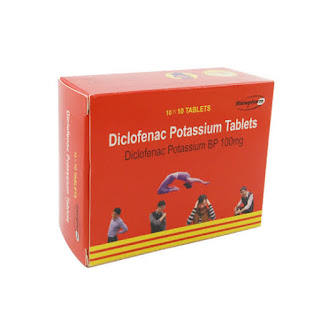Is Diclofenac Potassium Safe In Hypertension Than Diclofenac Sodium
There is a growing trend in Nigeria where medical personnel opt to give diclofenac potassium over diclofenac sodium in hypertensive persons. The theory behind this practice is that there is evidence of the effect of sodium in increasing hypertension when potassium does reduce hypertension. Well, the reason sounds logical but as a scientist, let us put in our thinking cap and analyse these data's separating facts from fiction.
Class And Indication Of Diclofenac
Diclofenac is a non steroidal anti inflammatory (NSAID) agent. It is used to treat pain and Inflammatory conditions. It is available as ear/eye drop, oral, parenteral and creams. It's use in children is not recommended but some still give children. It is indicated for arthritis, sprains, strains, etc. It is an over-the- counter medicine in Nigeria.
Read Also: Causes of stomach ulcer
Mechanism Of Action
Its mechanism of action is the inhibition of cyclooxygenase enzyme (COX I & II). One of the functions of COX is the production of prostaglandins which are responsible for inflammatory response in injury and pain sites.
Side Effects And Contraindications
Diclofenac has been shown to have a number of side effects and contraindications. It is contraindicated in people with stomach ulcer and heart disease such as heart failure and hypertension.
Diclofenac potassium or sodium
Effect Of Salts Of Diclofenac
But there is a general belief that one form of diclofenac is safer in hypertension than the other. The reasons have been outlined above in the opening paragraph. Let's see something. Oral diclofenac comes in either potassium salt or sodium salt form (the salt is a vehicle that carries the diclofenac in the body). The difference between these two is that diclofenac potassium is absorbed into the body quickly than diclofenac sodium. Diclofenac sodium has a slow absorption rate. So, diclofenac potassium is prescribed when there is need for quick pain relief while diclofenac sodium is given for reducing inflammation when there is no pain.
Effect Of Diclofenac Salts On Hypertension
Diclofenac as a drug is contraindicated in hypertension or in some literature 'used with caution.' Now, does the salt form increase or reduce the effect of drugs in hypertension? The answer to this question will be based on the quantity of these salts in these products and the maximum daily quantity of these salts that will have an effect on hypertension.
According to pharmaceutical-journal.com, a 12.5mg tablet of diclofenac potassium contains 1.46mg of potassium. The other weight contains the diclofenac and other excipients. And the maximum daily dose of diclofenac of any form is 200mg in Nigeria. The figure is lower in other countries especially in the United States of America (USA) using 75mg as maximum. Now, if we scale up that figure to the maximum daily dose, a 200mg diclofenac potassium tablet will not have up to 25mg potassium.
25mg of potassium is so small when we consider the quantity of potassium needed to elicit an antihypertensive response. According to research, an average person needs about 4.7g (not mg) of potassium to help reduce high blood pressure. To put it in a clear form, a single banana potassium content is between 300-600mg. And sometimes, people eat up to 10 in a sitting. That should show you that this tablet has little or no little blood pressure lowering effect.
Read Also: How to treat body pain in people with stomach ulcer
We can also say the same thing too about diclofenac sodium. The 50mg diclofenac sodium contains about 0.4mg of sodium. This is according to a research work in researchgate.com. If this figure scales up to 200mg maximum daily dose, the maximum dose of sodium from diclofenac sodium is not up to 1mg. How dangerous is 1mg daily sodium in hypertension. Nothing! According to the world health organisation (WHO), excess sodium intake of more than 5g (not mg) a day has an effect on blood pressure and has been linked with onset of hypertension and it's complications. Although, some research put it at 12g.
The post scales up the value to the maximum daily dose. There are so many times maximum daily dose is not given to reduce other side effects. That means that the figures used in this post were meant to show the worst scenario which rarely occurs.
So, when next the choice to choose between either of the diclofenac salts comes up, recommend based on the rate of action and not its effect on hypertension. And remember, diclofenac should be given with caution to hypertension persons irrespective of the salt form.

Interesting Article. Hoping that you will continue posting an article having a useful information. Potassium Tablets 200 mg
ReplyDeleteThank you for the explanation. A pharmacist once told me not to buy the diclofenac sodium because of the sodium content and its effects on hypertension. But now I know better. Thank you.
ReplyDelete